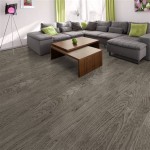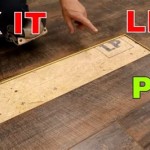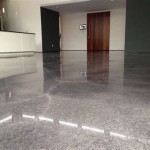DIY Heated Flooring Systems: A Guide to Essential Aspects
Heated flooring systems offer numerous benefits, enhancing comfort and energy efficiency in any home. For DIY enthusiasts, installing a heated flooring system can be a rewarding project. However, it's essential to understand the key aspects involved to ensure a successful installation.
Types of DIY Heated Flooring Systems
Two main types of DIY heated flooring systems are available: electric and hydronic. Electric systems use heating cables or mats installed directly under the flooring. Hydronic systems circulate warm water through pipes embedded in the floor.
Planning and Preparation
Before starting your installation, careful planning is crucial. Determine the areas where you want heated flooring, calculate the necessary square footage, and choose the appropriate system type based on your home's construction and heating needs.
Installation Guidelines
Follow the manufacturer's instructions meticulously during installation. Electric systems require proper wire gauge and proper placement of heating elements. Hydronic systems require accurate pipe sizing, manifold arrangement, and pressure testing.
Choosing the Right Flooring
Not all flooring materials are compatible with heated flooring systems. Choose flooring that can withstand the heat without warping or cracking. Ceramic tile, natural stone, and laminate flooring are popular options.
Temperature Control and Energy Efficiency
A thermostat is essential for controlling the temperature of your heated flooring system. Choose a thermostat with programmable settings for energy efficiency. Insulation under the flooring can also help reduce heat loss.
Professional Assistance
While DIY heated flooring systems are generally accessible, it's wise to consult with a licensed electrician or plumber if you encounter any complexities or require assistance with electrical wiring or plumbing connections.
Maintenance and Safety
Regular maintenance is essential to extend the lifespan of your heated flooring system. Check the thermostat and heating elements periodically, and contact a professional if you notice any issues. Always follow safety precautions and disconnect the power supply before performing maintenance.
By understanding these essential aspects and following the guidelines, DIY enthusiasts can confidently install heated flooring systems in their homes, enjoying the benefits of comfort and energy efficiency for years to come.

Diy Hydronic Floor Heating Systems Radiant Www Hydronicheating Com

How To Install Diy Radiant Floor Heating This Old House

Average Radiant Floor Heating Cost In 2024 Forbes Home

The Closed System Diy Radiant Floor Heating Company

Diy Radiant Floor Heating Heat Pump System Example Krell Distributing Company

The Floor Joist Installation Diy Radiant Heating Company

Our Diy Radiant Heat Systems Make It Easy For Anyone To Install Their Own Heating Sys Floor Heated Concrete

Janes Radiant Diy Geothermal And Heat Systems

How To Install Floor Heating Cable System Ditra Heat

Radiant Heating Department Of Energy








